The latest addition to the Manaka family is a new restaurant and coffee shop at Rand Steam Shopping Centre: a large and welcoming space that’s a great lunchtime spot or office away from home. We sat down with Symons to hear how it came to be and what's next.
Manaka Coffee at Rand Steam Shopping Centre in Richmond (bordered by Melville and Milpark) opened in December 2024 – but it looks as if it's been around much longer. Part of this is due to a well-established brand. But it's also because the space it now occupies was crying out for it. The centre is named for the location of the original Rand Steam Laundries and the 'Ama-washa' site of the late 19th century. Heather Mason aka @2Summers has a great piece on the history, here. What is today described as an "urban eclectic shopping centre", the modern Rand Steam draws a mixed population: students, business people, and residents from the surrounding neighbourhoods, as well as the City Centre.
We set up shop at Manaka's new café one Friday (February 2025) for coffee, some shared bites, and a conversation with Symons. While we can’t fault the food and drink – and we'll get to this later – our chat with Symons was undoubtedly the highlight. Sharing candidly about his journey, his passion was infectious.
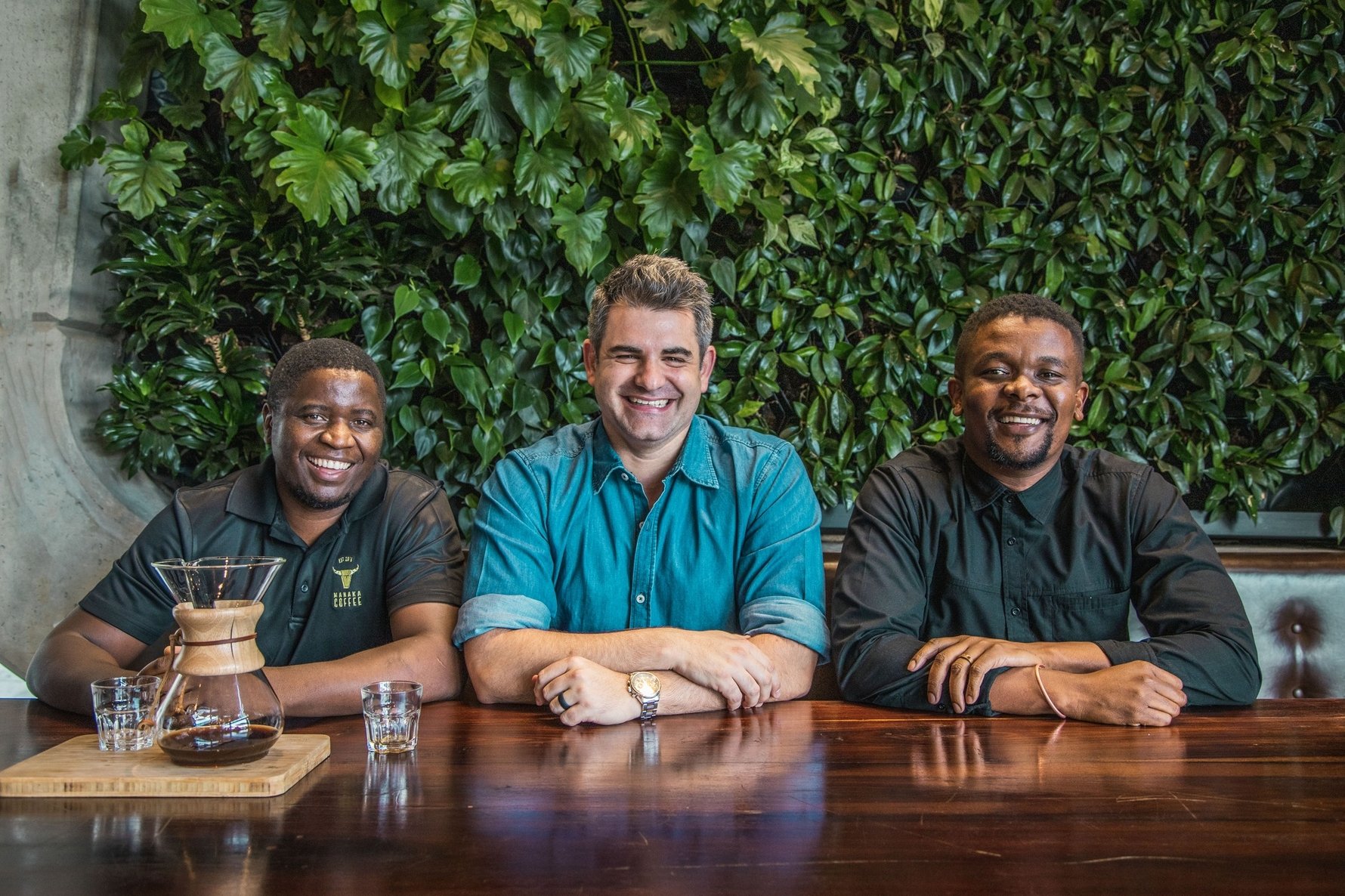
The story goes like this. Burnt out by the relentless pace and expectations of the ad world, Symons set off on a new adventure. His very own Eat Pray Love. (Spoiler: he did end up finding the woman he was to marry abroad. Symons’ wife was born in Korea.)
"I wanted to go and travel the world to recharge," he says, "and I was willing to do anything. I ended up in the Czech Republic to teach English, but that didn’t work out." He then found himself in a small farming village in South Korea. "I got there, and I had a 36-hour flight and I was expected to work that afternoon. It was hectic, but I gave it a go. I was there for a year and a half."
After learning a bit of the language, Symons transferred to Seoul. Because his apartment was so small, he wound up spending a significant amount of his time in a coffee shop across the road. "The coffee shop becomes your space," he reflects. "It’s very different."
Naturally, he was drinking a lot of coffee on these visits. At first, nothing hit home. But then one day he had a cup of coffee, and a light went on. He remembers thinking, "I want to know why it tastes like this." The barista took the time to explain it to Symons, whose interest was ignited. "That was the start of my coffee dream," he says. As someone who doesn’t drink alcohol, he was primed for this discovery: "Until that point, I really didn’t have something that I could be a connoisseur of. I started to collect coffees."
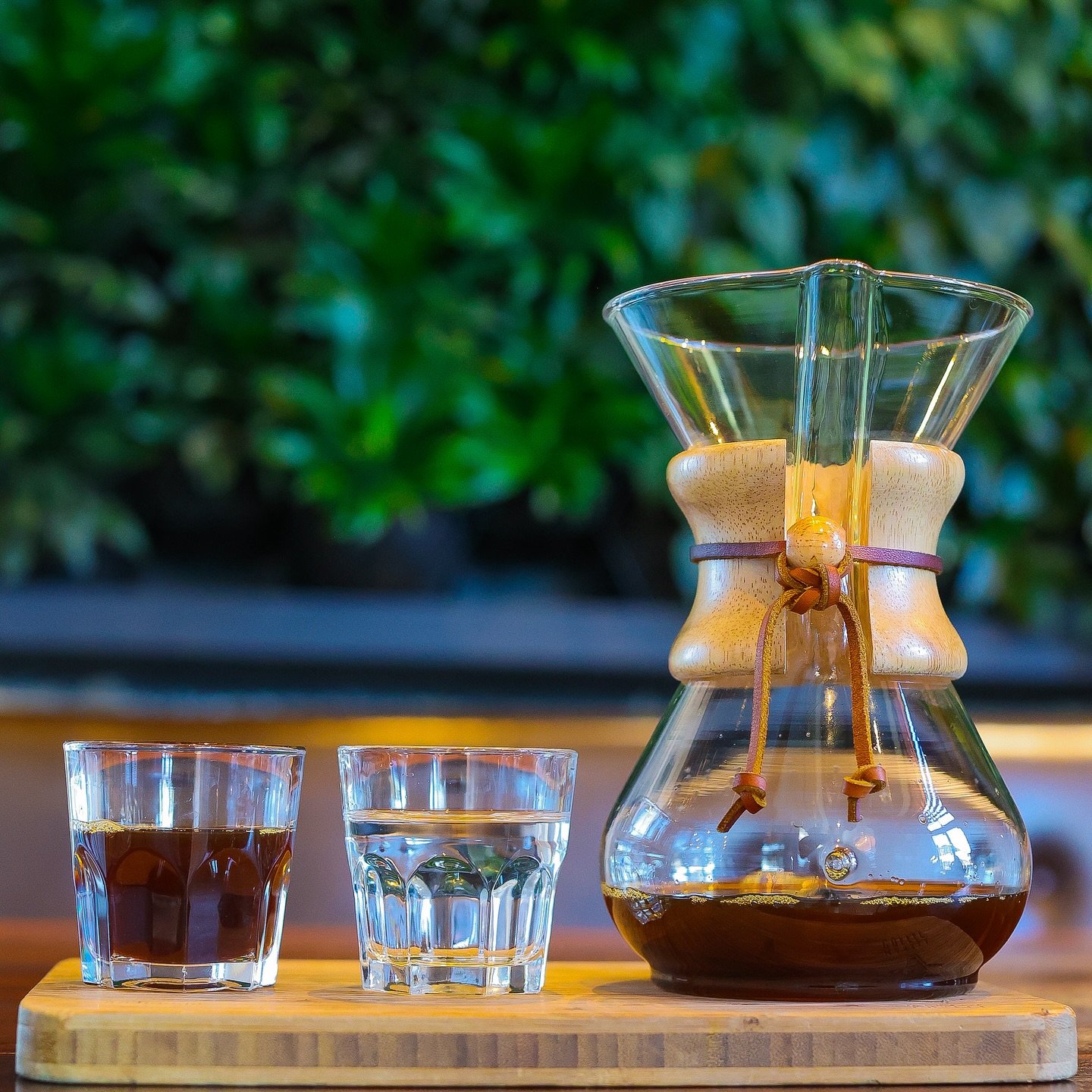
At this point in Symons’ journey, there was still a strong possibility of him never returning to South Africa. "I just sort of made up my mind that I was going to go and live out there in the world, you know?", he tells us. Yet fateful days seem to be a theme here. And on another one of these, walking down the street in his neighbourhood, the realisation dawned on him: "I’ve got to go home."
Back in Seoul, Symons was drinking two cups of premium coffee a day. In Joburg, however, it wasn’t so easy to get his fix. Coffee culture in Korea at the time was burgeoning. Seoul today has the most Starbucks chains per square kilometre in the world, beating even New York City.
When Symons’ returned to South Africa in 2015, the coffee industry was incredibly niche and small-scale. Cape Town had started to cotton on to the trend, but the options in Joburg were still relatively limited. Bean There (still a popular spot at 44 Stanley) opened up shop in 2005. And then there was 4th Avenue Coffee Roasters in Parkhurst – operating since 2004. This was where Symons found himself making a daily trek, travelling 20 kilometres for his coffee. He realised, "There’s literally a 20-kilometre gap in the market." And because he did have it in the back of his mind that he wanted to come back to the country and change things, the cogs started turning.
Before Manaka came into being, Symons' project took on other forms. He launched Phats and Bones Coffee Company (based on his nickname at school) with a friend, re-entering the creative industry by selling coffee in offices. "It was super humbling," he says. He started this business with R5,000 – the cost of the first batch of coffee. This branched off into a sister-brand, Stimela – run by Neo Moleko-Siphayi, who is a partner in Manaka today. Phats and Bones and Stimela ran concurrently for six months before Phumlani Sibeko entered the picture, with 20 years of experience behind him. "He’s one of the best roasters in the country," Symons tells us. Sikebo was working at Famous Brands as the head roaster but had hit his ceiling in terms of earning capacity.
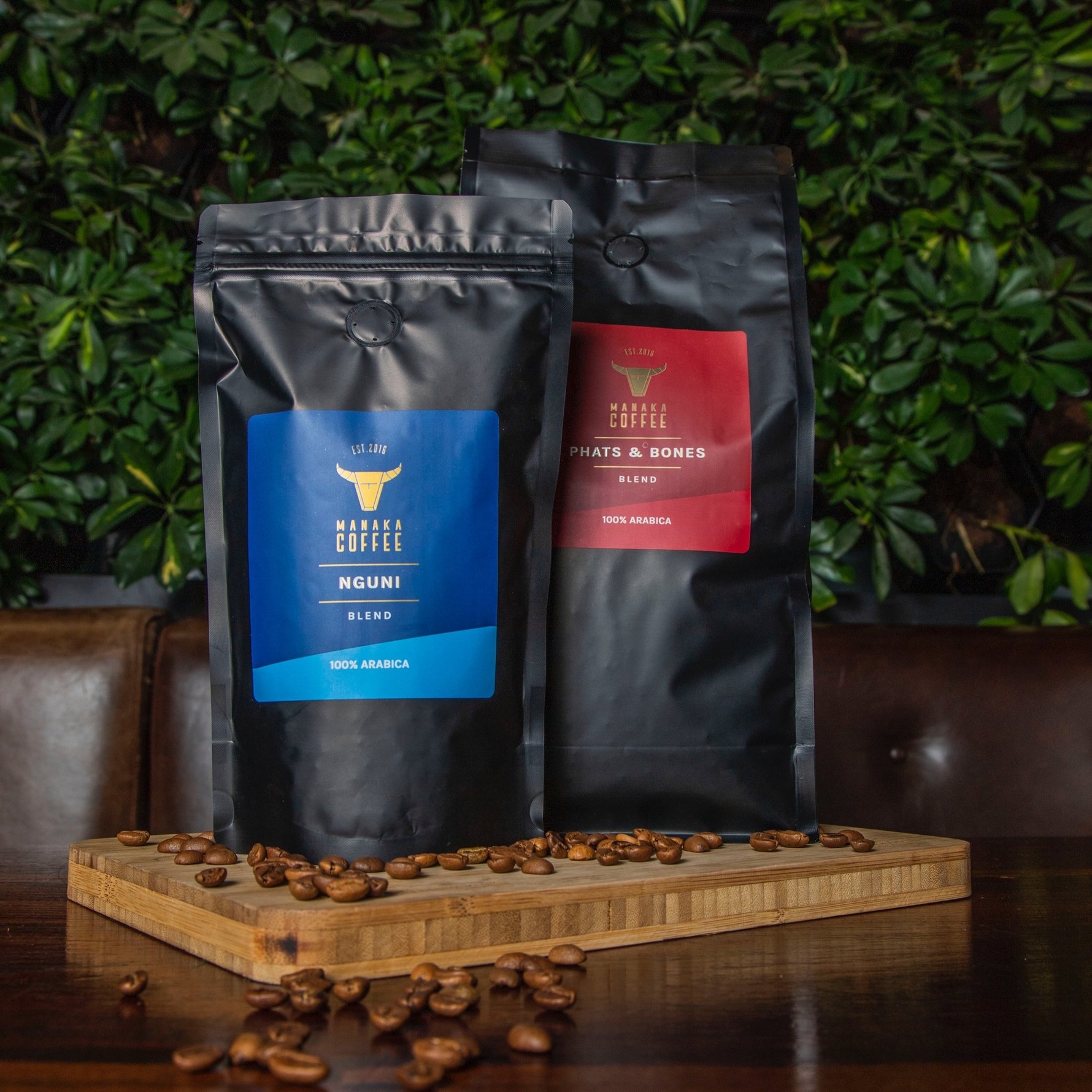
Many more fateful twists and turns in the tale made it possible for this trio to join forces with Alessandro Mosupi Khojane (of Gemelli fame), the fourth partner in this brotherhood of brews. "We were legitimately the first 51 percent black coffee brand in the country. It's an environment that's completely dominated by white men. That's not what we wanted to be. It's an authentic story."
Manaka's tagline is 'We are true Africa' and, indeed, the founding partners also draw influence from around the country, tracing their lineage from Pimville in Soweto (in the case of Sibeko) and Bloemfontein (where Khojane was born). The coffee beans used in Manaka's signature blends are sourced from across Africa in Ethiopia, Tanzania, and Uganda – as well as further afield, from places like Guatemala in Central America.
As for the name, Symons wanted it to be "an African word that black and white people can say." Manaka was Moleko-Siphayi's idea: it means the horns of a bull in Sesotho. It’s an endearing symbol in African culture that evokes strength, speaks to the practice of lobola, and connects to the spiritual world. The logo Symons designed is based on an origami bull that his brother folded, adding a meaningful layer of familial connection.
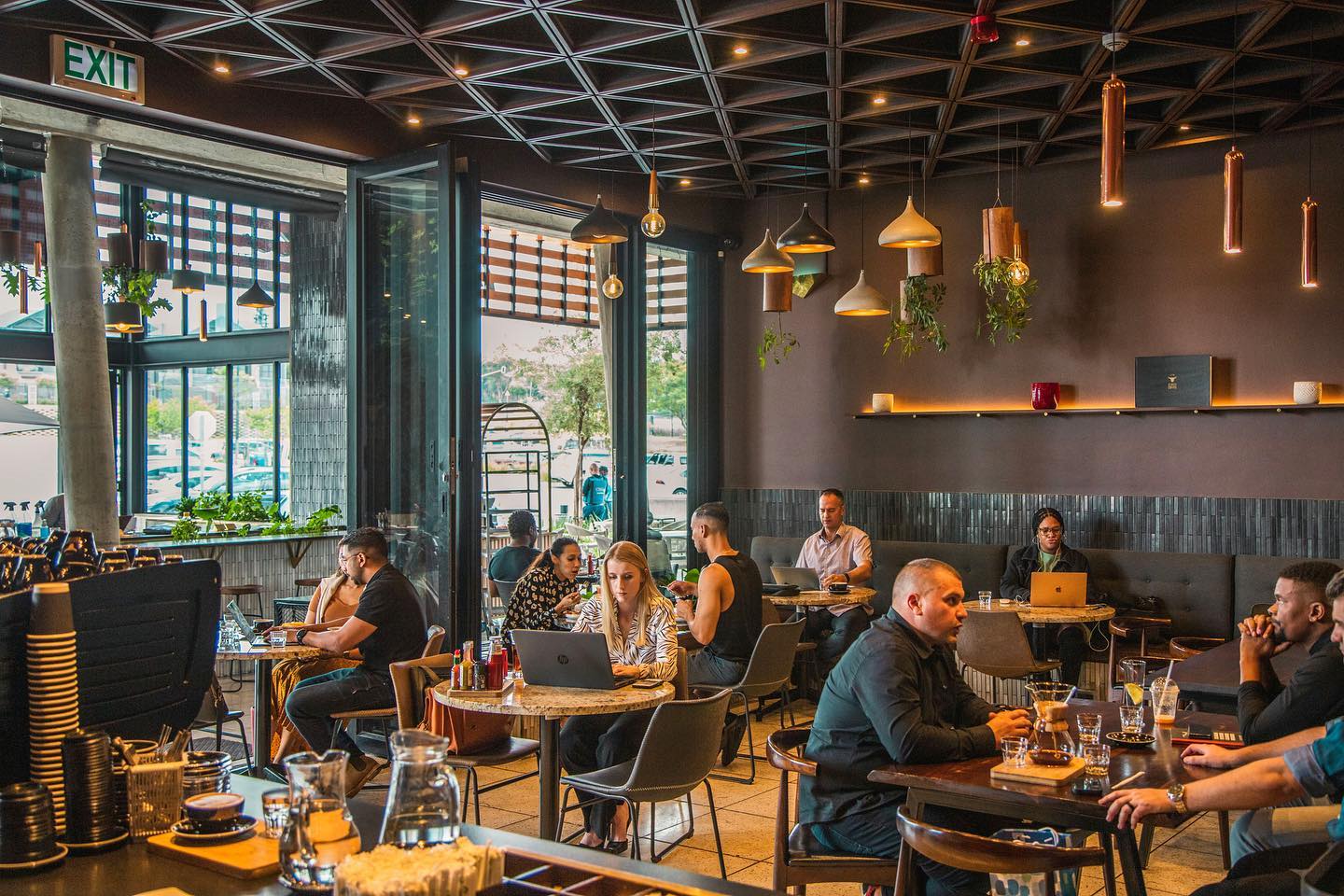
To date Manaka has seven locations: a sit-down restaurant Polofields Crossing in Waterfall City, three forecourt stores at Sasol garages, two coffee bars in corporate spaces (not open to the public), and the new Rand Steam Shopping Centre spot.
"It's been a long year," Symons admits. "From an entrepreneurship perspective, it's been way more difficult than I thought. Business is hard. Picking yourself up after a thousand disappointments is not easy. It costs, you know? You go back to your family. And it's the part that a lot of people don't get to see. "It's all great when you're standing there and smiling."
But some moments make it all worthwhile. Symons tells us of a conversation he had with Sibeko years back: "There's a coffee machine called the Black Eagle. It's absolute overkill. So I said to Sibeko, 'We're going to own a Black Eagle in our shop,' and he's like, 'Okay, okay'. When the Black Eagle landed in our first shop, he said, 'I will no longer question you.'" Sitting with Symons, it's evident that he cares deeply about what he does – and the people are a big part of it. "You can tell I'm tired," he admits. "It's a Friday. But I like to tell my story because it recharges me."
And that grand vision we mentioned earlier? Symons’ goal, not-so-lowkey, is to replace Starbucks. Yes, really. "Starbucks has 32,000 stores globally, and I think that's too many. My goal is to build 24,000." Having met Symons, this doesn’t even sound far-fetched.
Shaping Manaka – premium coffee, but food is not an afterthought
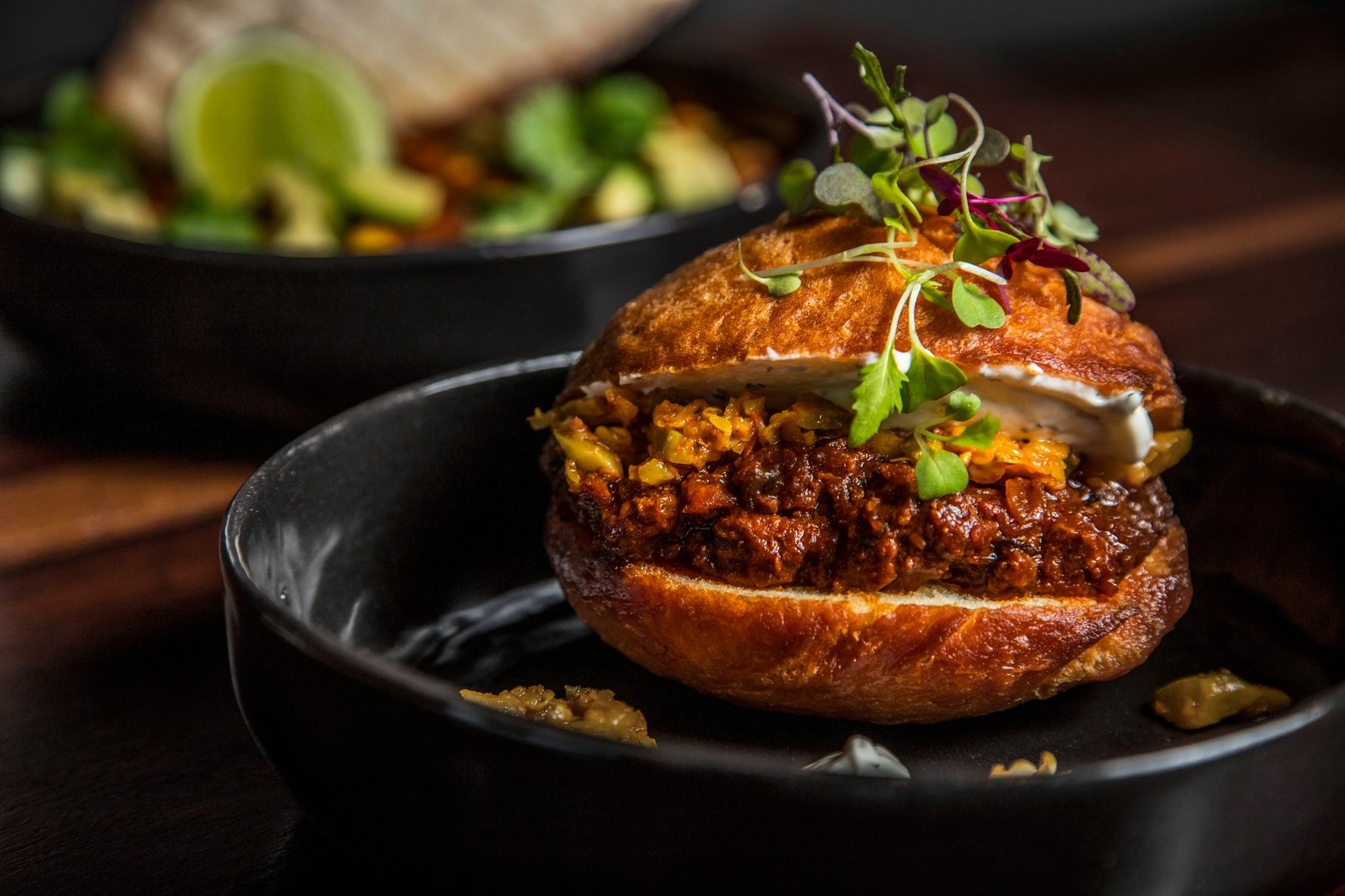
Thinking of coffee shops and cafés, the food offering can often be limited. Not so at Manaka. While excellent coffee will always be core to the offering, the food menu is surprisingly extensive, and wide-ranging.
"We had that conundrum. I also wanted to be one of those people who specialise in coffee," Symons says. "But then I realised it's too quick a journey – or rather, there is no journey. And you have to sell a lot of coffee to make money." In a city like Joburg, where there isn't always off-street retail access or a strong enough walking culture, this model proves even more difficult. The petrol station concept makes more sense here, because we're always in a car. "I bet we're one of the countries that spends most time in a car," Symons wagers.
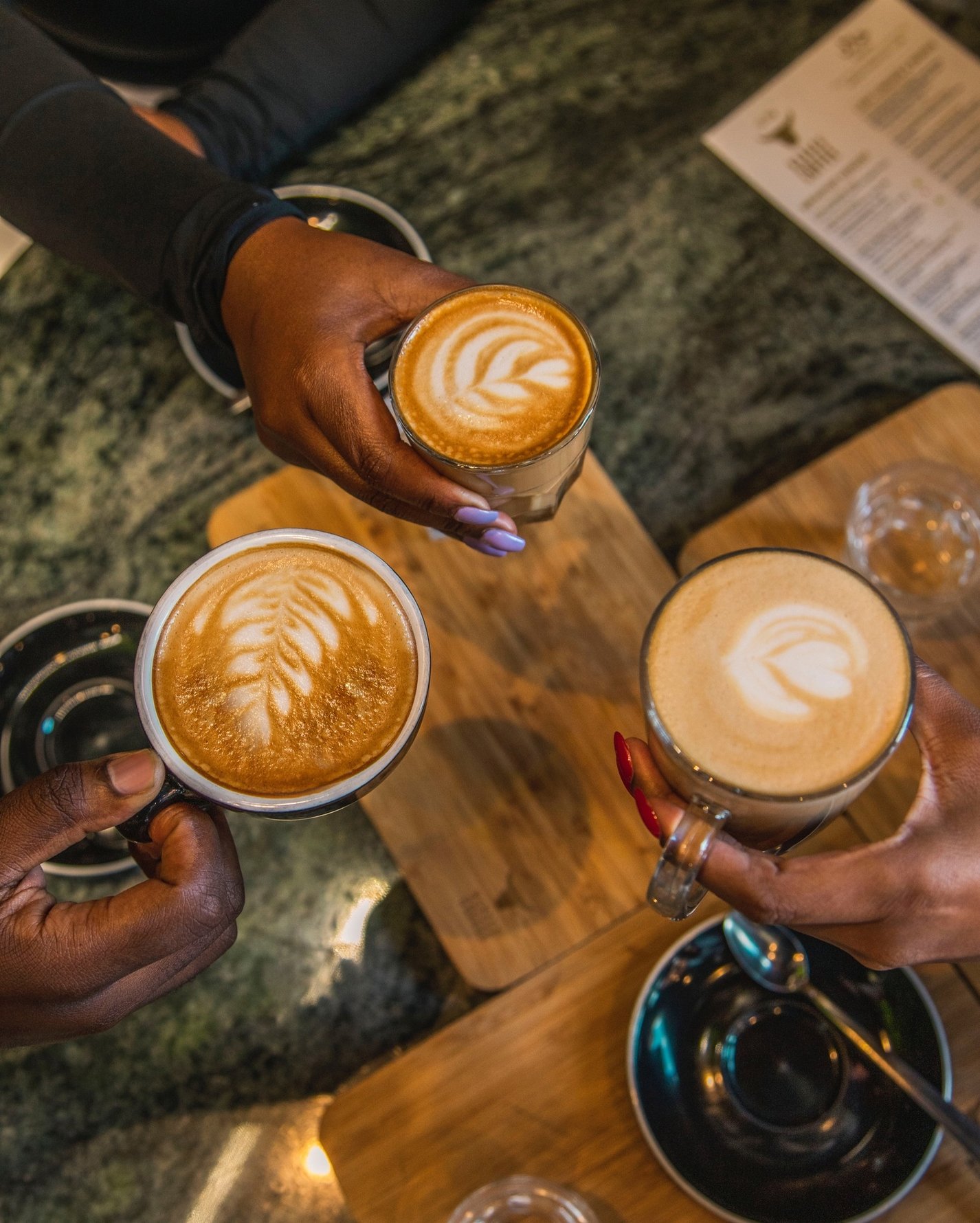
Symons noticed that restaurants were getting repeat customers for their take-out coffee, "Because you're more likely to drink an Americano every day than order a toasted chicken mayonnaise." What he's done is flip that model. Come to Manaka for the coffee, stay for the eats. Everything on the menu is also certified halal.
Drawing on his success and experience in the food industry, Khojane brought his culinary expertise to Manaka. The menu includes everything from all-day breakfasts to burgers and wraps, salads, and freshly baked treats. Deceptively simple food that's big on flavour and prepared with care, with local touches adding flair. It's more than your usual café-style fare.
Visiting Manaka Coffee at Rand Steam Shopping Centre
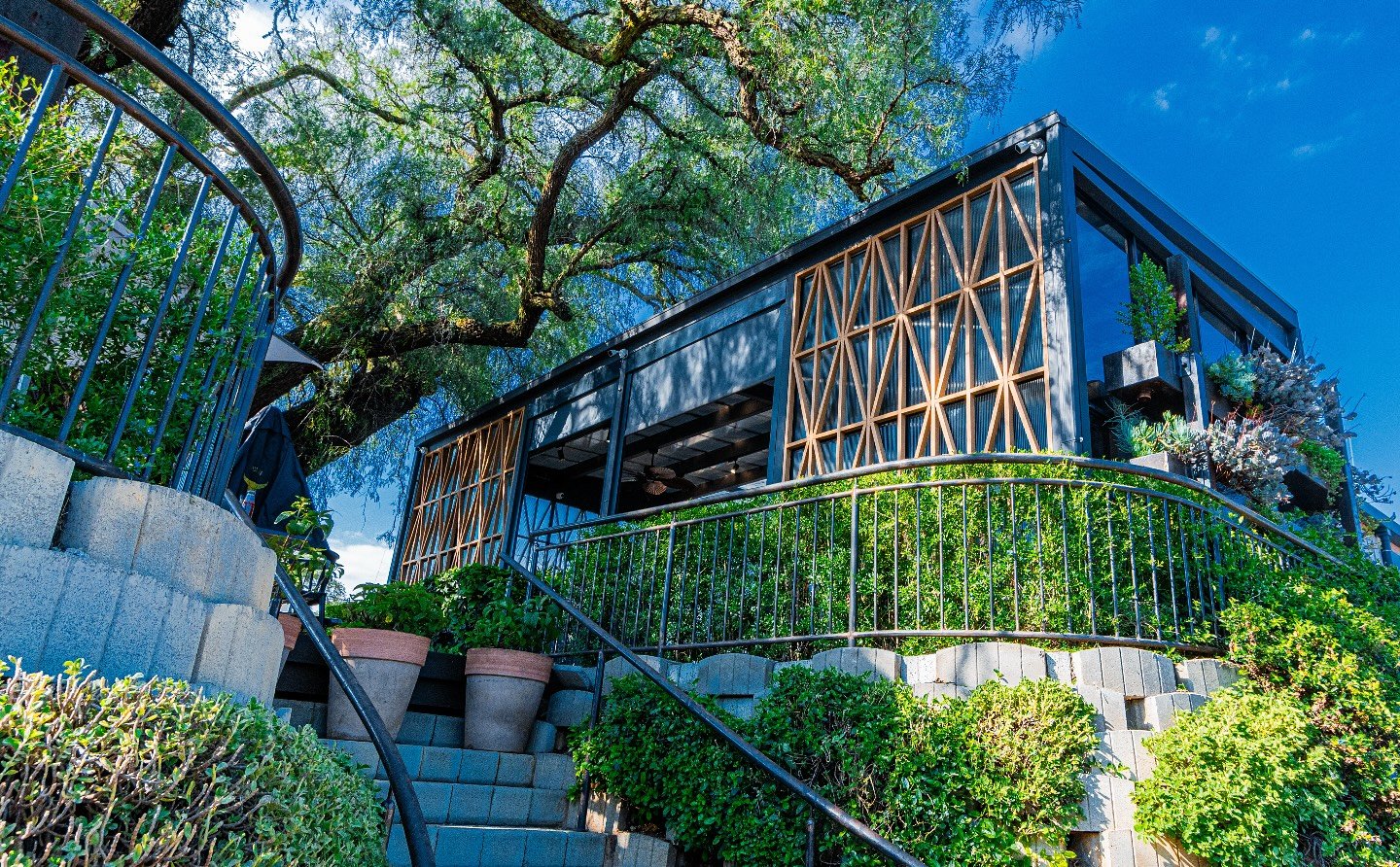
Manaka's Rand Steam space is fairly large but retains a friendly and intimate atmosphere – achieved in part by the creation of three distinct seating areas. There's indoor seating, an in-between section, and a sort of verandah area that is nestled under a beautiful old tree. "I was here two years ago," says Symons, "looking at a space near the Westpack store. And I was staring down here and said, 'That's actually the space that I want.'"
As we're talking, our coffees arrive, and Symons quips, "I've never seen it that quick." He's pushing for all orders to be out and paid (in the case of takeaways) in two minutes, although certain drinks do take longer to prepare. And on a busy day, especially, this is easier said than done.
With our Americano and cappuccino in hand, the conversation takes the only natural turn. What should we order to eat? "I'd go for the dirty food," says Symons. His favourites include the siracha chicken wrap, the prego roll, and the "boerie roll that went to private school". For the magwinya, he recommends the Cape Malay lamb version – which is what we opted for. The bun was soft and sweet, and the filling hearty and richly flavoured. It's certainly more-ish. Alongside this, we shared two salads: the smoked salmon (with pappadews, feta, and olives) and the halloumi (with baby spinach, edamame beans, avocado, and chickpeas). The portions are generous, the toppings in particular. You don't feel as though you're getting a bowl full of lettuce with just a dressing to spruce it up. It's a great, fresh option that is still plenty satisfying.
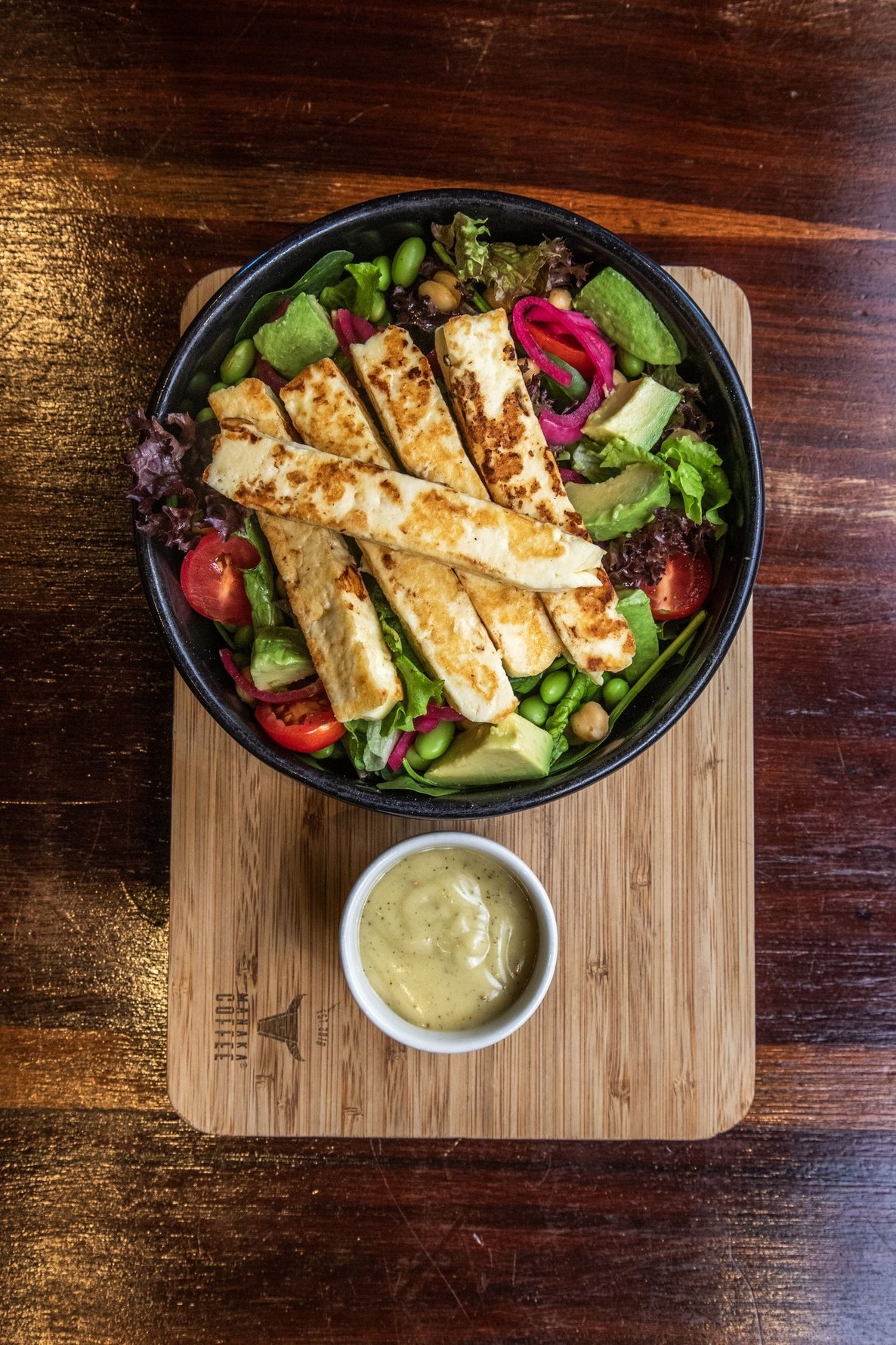
On Symons' insistence, we weren't leaving without trying the authentic milk tart. While the other cakes and treats are sourced from an external bakery, this dessert is prepared in-house. And Symons is mighty proud of the recipe. What can we say? It's delicious. Light, just the right amount of sweet, and with a crisp base that doesn't overpower the delicate custard filling. Definitely worth your while.
Manaka Coffee menu and location
For Manaka's full menu, click here.You can find Manaka Coffee at Rand Steam Steam Shopping Centre on the corner of Barry Hertzog Avenue and Napier Road, Richmond. Opening hours are from 06:00 – 18:00 daily, while food is served from 07:00 – 17:30.
For more info, visit manakacoffee.co.za.


_m.jpg)
_m.jpg)
_m.jpg)


Comments